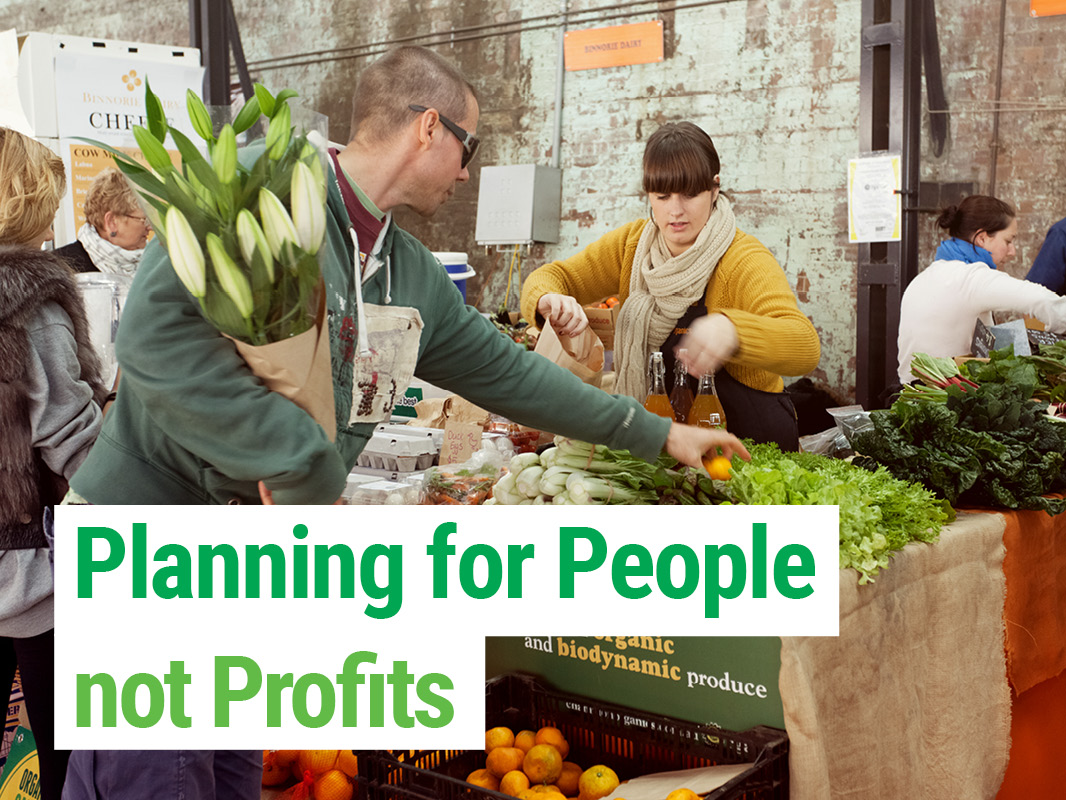The Greens know that planning should be about people, places and the environment — not profits for developers and their mates.
That’s why all Greens Councillors are fundamentally committed to 5 Key Planning Principles.
1. Ecologically Sustainable Development
The principle of Ecologically Sustainable Development lies at the heart of good planning: protect what iss precious and work on a precautionary principle when you are unsure of the impact. Ecologically Sustainable Development protects and enhances biodiversity while ensuring we have the jobs and housing we need. New developments needs to be sustainable, environmentally sensitive with a focus on reduced energy consumption to mitigate the impacts of climate change.
2. Fair, Full and Effective Public Participation
Planning decisions are everybody’s business. When changing the face of a local area and approving development proposals, councils must embrace the local community as an equal partner. To promote public trust, interest and inclusion, councils must actively facilitate information sharing, engagement and dialogue. The Greens know that when local voices and local concerns are bypassed, everybody loses out and that’s why we will ensure that local communities are empowered to shape the future of their local area.
3. Affordable, Sustainable, Walkable, Liveable Cities
The Greens are committed to planning decisions that create affordable, walkable, liveable communities that are sustainable well into the future. This means development density that is human scale and appropriately located near transport and employment hubs. It must provide for green open space and public recreation facilities.
4. A Corruption Proof Planning System
Local councils must ensure that all planning decisions avoid conflicts of interest, perverse incentives or other risks of corruption. Decisions cannot be made behind closed doors. All elected Greens will work to reinstate third party appeal rights as one of the key avenues for community and environment groups to hold decision-makers and developers to account. We know that property developers, real estate agents and conveyancers have no place on local councils – that is why there is not a single property developer or real estate agent among our team.
5. Transparent and Objective Evidence-Based Assessment of Plans and Proposals
Councils must ensure that their decisions are being based on comprehensive and objective assessments. This means not accepting at face value the expert reports paid for and written for developer proponents, but ensuring there is sufficient expertise and professional competence retained within council staff to truth check developers claims. This would provide an essential check and balance to put to the test the often inflated and unsustainable claims made by developers. In short, councils’ planning decisions must be local, integrated and above all impartial.
The Greens’ Good Local Development Test:
- Will the environment be protected?
- Will it bring social, economic and environmental benefits to the community?
- Will it have enough open space, recreational facilities and make it easier to get around without a car?
- Will it reduce energy consumption and help tackle climate change?
- Have all reports been prepared by independent consultants or certifiers?
- Has all the information on this development been made available to the public?
- Has there been fair, full and effective public participation in the process?
- Have we corruption-proofed this planning decision?

